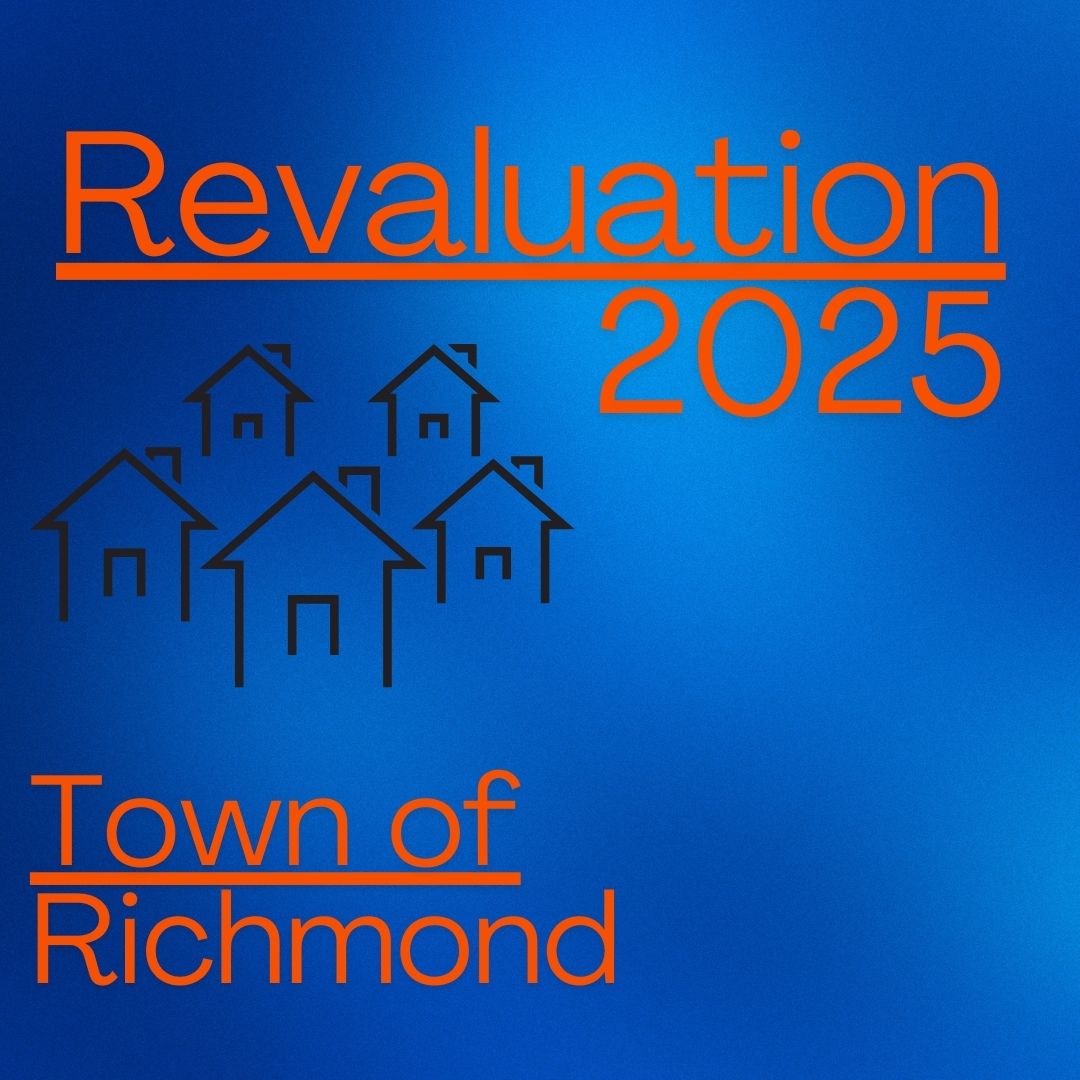Published on September 10, 2024

RJD Appraisal: Meet the Assessors.pdf
Start Date: Estimated to begin end of September 2024
Values will be reflected in the 25-26 Tax Year (September of 2025 Tax Bills)
What is a Revaluation
A Revaluation is a process which creates a solid base of inventory for tax purposes. The Maine Constitution states that all taxes upon real and personal estate, assessed by authority of this State, shall be apportioned and assessed equally according to the just value thereof.
In order to apportion the tax burden equally, the assessor(s) must establish assessed valuations in accordance with just value. Just value is synonymous with market value.
Each year a town votes to raise a certain amount of money in order to provide and pay for local services, such as education, administration, plowing, etc. Some of the town’s revenue comes from the State such as Revenue Sharing, reimbursement for tree growth tax loss and education subsidy. Other revenue may come from local service fees or excise tax.
There are several methods in performing a revaluation. A town may opt to make in-house adjustments. There are also professional firms certified to do the job. A thorough revaluation by a professional firm would require a town vote in order to appropriate the money to pay for the process. The Town has been appropriating the funds for the revaluation for the past three years at town meeting. The last revaluation was completed in 2008.
A town votes to pay for a revaluation because they recognize the need to equalize the valuations so that no one taxpayer pays more or less than their fair share of the tax burden. The need to have a revaluation may be due to the lack of an inventory of parcels and building components or due to a change in market value. The Town’s certified ratio has been declining and with that the taxpayer is not receiving their full homestead exemption/veterans exemption/tree growth reimbursement. In 1975, Maine’s Property Tax Law added language that required a town to maintain valuations equitably to at least 70%. This allowed a taxpayer to understand their own valuation and relate it to other property values within the town. Myth: If a town’s assessment ratio falls below 70%, then the State will step in and order a revaluation. This is not true.
During the revaluation, the firm of RJD Appraisal will have a crew that will visit every property within the town and record data such as land acreage and building components including age, dimensions, quality of construction.
Land data will also be collected based on the acreage, topography, improvements, restrictions and covenants.
The firm will review local sales that are considered “arms length” transactions and start creating pricing schedules for land and buildings.
As a result, all properties will have an assessed value for tax purposes typically based on current cost of construction and local market sales. The information collected and the ownership of the property will reflect the status on April 1st.
The taxpayer will have the opportunity to review their new assessment and ask the professional firm specific questions.
Appeal. A taxpayer has the right to legally appeal their tax assessment if they feel that it is unfair or unjust. The first advice, however, is to visit the local assessor(s) and discuss your concerns.
The revaluation process will start in mid-September. Notifications will go out via the Town’s message board, Facebook and website. The Assessor will have identification on them acknowledging who they are, the firm they are with and that they are working on the revaluation for the Town of Richmond. The new values will be reflected with the 25-26 tax year.
FREQUENTLY ASKED QUESTIONS
If we have a revaluation, will my taxes go up?
Not necessarily. A town will raise exactly what they vote to appropriate. A revaluation will not raise any more or any less than that amount.
But what if my taxes do increase?
If you see an increase in your individual tax bill, then most likely you were paying less than your fair share of the overall tax burden the year before. Some tax bills may even decrease.
Will we lose Education Funding?
Unlikely. Both the education funding and revenue sharing are based on the town’s equalized valuation (state valuation) which is determined by the Maine Revenue Services. A revaluation only solidifies the base for your state valuation.
Do I have to let them into my home?
No. You have a right to deny entrance. However, in the inspection process of the revaluation, the more information made available, the more fair and equalized will be your assessment. It is very important that the inspector review not only the quality of your construction, but also any deterioration or negative influences.
